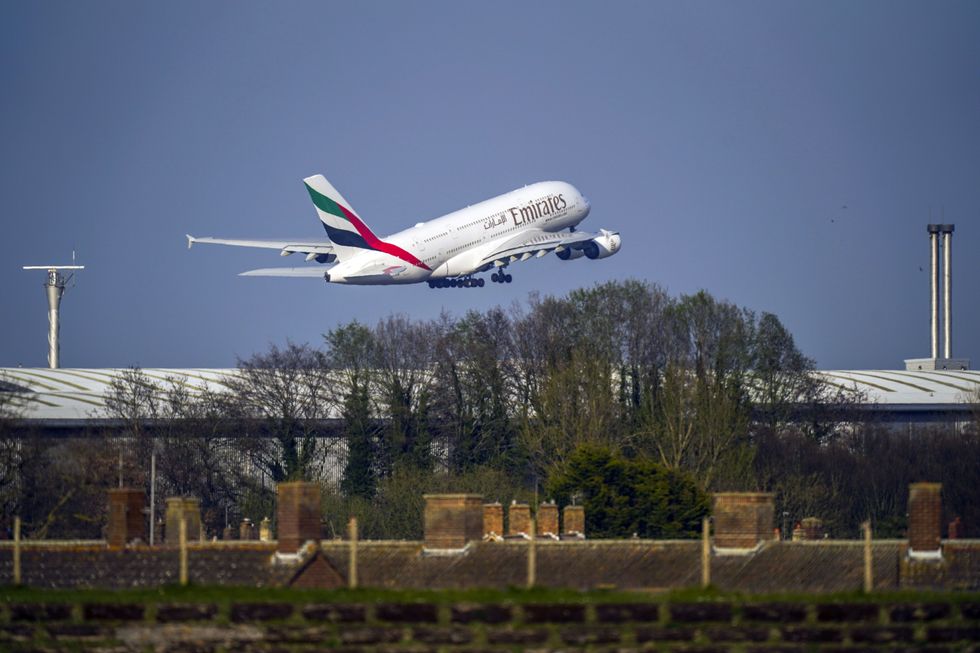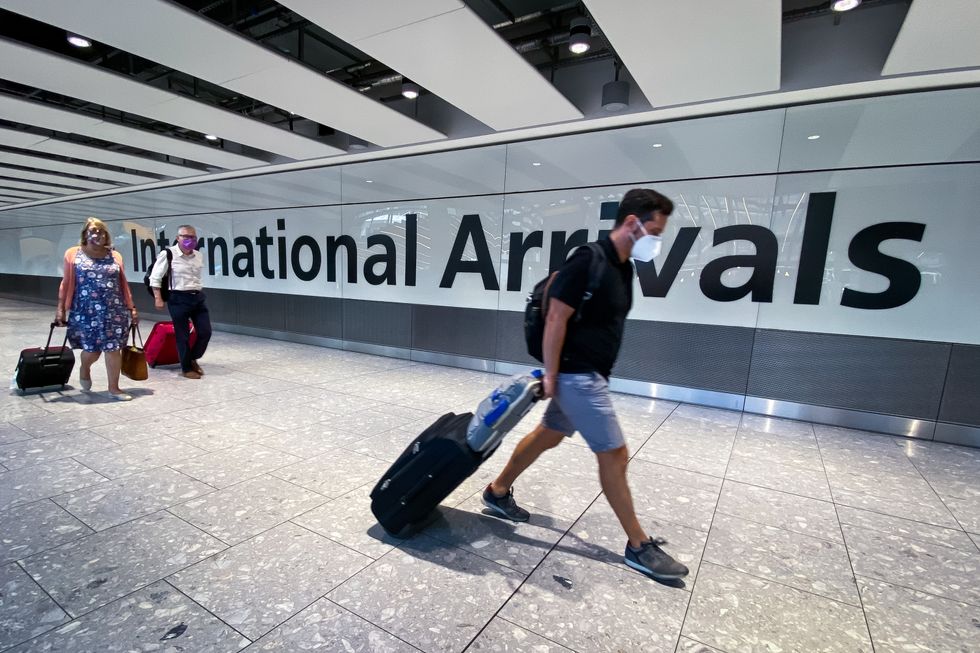Emirates rejects Heathrow’s order to cancel summer flights as travel chaos continues
Heathrow had urged carriers to stop selling summer tickets as it imposed a cap on passenger numbers until September 11
Don't Miss
Most Read
Emirates has rejected an order from Heathrow to cancel flights to comply with a cap on passenger numbers.
The airline accused the west London airport of showing “blatant disregard for consumers” by attempting to force it to “deny seats to tens of thousands of travellers”.
On Tuesday, Heathrow pleaded with carriers to stop selling summer tickets as it imposed a cap on passenger numbers until September 11.
Many passengers flying to and from the UK’s busiest airport have suffered severe disruption in recent months, with long security queues and baggage system breakdowns.
Emirates has rejected an order from Heathrow to cancel flights
Steve Parsons
Emirates said in a statement: “LHR (London Heathrow) last evening gave us 36 hours to comply with capacity cuts, of a figure that appears to be plucked from thin air.
“Their communications not only dictated the specific flights on which we should throw out paying passengers, but also threatened legal action for non-compliance.
“This is entirely unreasonable and unacceptable, and we reject these demands.”
It added: “Until further notice, Emirates plans to operate as scheduled to and from LHR.”
The Dubai-based carrier said its ground handlers at Heathrow are “fully ready and capable of handling our flights”, which means “the crux of the issue lies with the central services and systems which are the responsibility of the airport operator”.
It stated it would be “impossible” to re-book the number of passengers that would be affected by Heathrow’s cancellation demands.
Moving some of its operations to other UK airports at short notice is also “not realistic” as locating somewhere that can facilitate a widebody long-haul aircraft carrying 500 passengers is “not as simple as finding a parking spot at a mall”, the airline explained.
Emirates described Heathrow's demands "entirely unreasonable and unacceptable"
Aaron Chown
The statement added: “The bottom line is, the LHR management team are cavalier about travellers and their airline customers.
“All the signals of a strong travel rebound were there, and for months, Emirates has been publicly vocal about the matter.
“We planned ahead to get to a state of readiness to serve customers and travel demand, including rehiring and training 1,000 A380 pilots in the past year.
“LHR chose not to act, not to plan, not invest. Now faced with an ‘airmageddon’ situation due to their incompetence and non-action, they are pushing entire burden – of costs and the scramble to sort the mess – to airlines and travellers.
“The shareholders of London Heathrow should scrutinise the decisions of the LHR management team.”
Responding to Emirates’ refusal to cancel flights, a Heathrow spokeswoman said: “Aviation is a complex network and no-one can operate in isolation. The network continues to suffer from Covid-related challenges.
“While many factors have resulted in the delayed flights, misconnected bags, long waits for arriving bags and last-minute cancellations at Heathrow and airports across Europe in recent weeks, a key issue is airline ground-handling teams which are currently only resourced up to 70 percent capacity to serve passenger demand which has returned to 80-85 percent of pre-pandemic levels.
“For months we have asked airlines to help come up with a plan to solve their resourcing challenges, but no clear plans were forthcoming and with each passing day the problem got worse.
“We had no choice but to take the difficult decision to impose a capacity cap designed to give passengers a better, more reliable journey and to keep everyone working at the airport safe.
“We have tried to be as supportive as possible to airlines and our 100,000 cap on daily departing passengers is significantly higher than the 64,000 cap at Schiphol (in Amsterdam).
“It would be disappointing if instead of working together, any airline would want to put profit ahead a safe and reliable passenger journey.”













